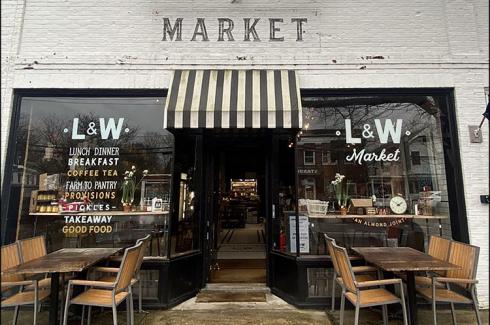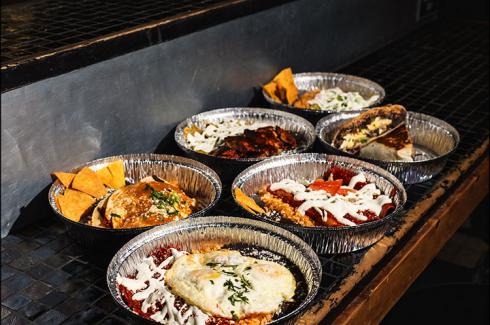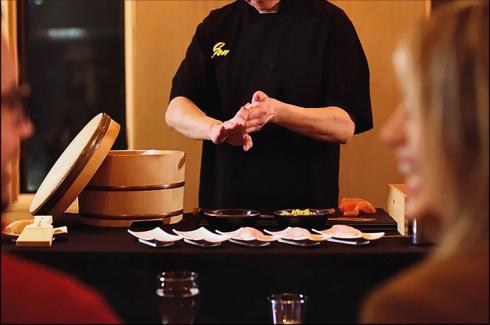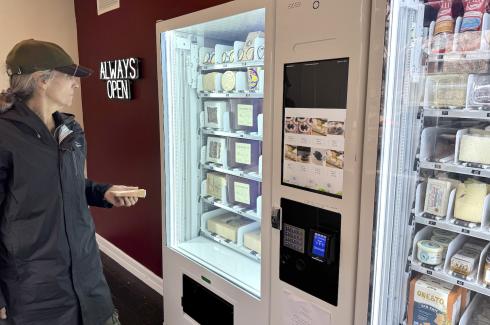A new apple orchard was planted last Thursday on the Stony Brook Southampton college campus. The trees won't bear fruit for four years yet, but you've got to start somewhere, right?
A crew of farmers from the Halsey family's Milk Pail orchard planted 24 young "whips" spanning six varieties, including some from the family's stock of the exceedingly popular Milk Pail 50 apple, in the farm plot belonging to the school's FoodLab program. Whips are young trees that have robust root systems but no branches yet, which allows cultivators to shape the trees as they mature to achieve maximum growing efficiency, taste, and abundance.
"It's super exciting," said Judiann Carmack-Fayyaz, the education director of FoodLab. "This is part of a project where we're going to teach people about planting edible trees and plants as opposed to, say, Bradford pear trees that flower but don't bear fruit, or Kwanzan cherry trees, with these double-pink flowers that don't bear cherries."
As future students in the program will learn starting in September, planting an edible garden, and trees in particular, has benefits beyond the obvious (eventual) fruit. When they do bear fruit, the apples from the new FoodLab orchard -- located about 20 paces away from the FoodLab greenhouse, where students with Stony Brook's School of Marine and Atmospheric Sciences are currently drying rows and rows of sugar kelp -- will be donated to food pantries and offered to FoodLab and other students. The orchard will also be open to local schools for field trips.
"And there's a lot of carbon sequestration in trees, so it's super environmentally sound to plant like this," said Ms. Carmack-Fayyaz. "It'll change the way you look at your landscape."
She knows this from experience. When she lived in England, she had two apple trees in the yard, including one for making pies. Later, when she visited France, she observed her friends' fig trees, whose fruit they used to make homemade jams. "The plants were part of their food source, and there's nothing better than something super fresh that you can just go outside and pick."
There are big plans in the works to fill out the FoodLab farm.
"It doesn't look like much now," said Ms. Carmack-Fayyaz, "but by the end of the summer, this will be an incredible space with different things happening: orchards, berry trees, a pollinator garden, a biointensive farming training area, and an indigenous knowledge and practice garden."
FoodLab purchased its whips from the Milk Pail, but Jennifer Halsey Dupree furnished the crew and materials for planting last Thursday. Later in the afternoon, she and Ms. Carmack-Fayyaz crumbled handfuls of dried kelp onto the ground around the newly planted whips to help enrich the soil.
"What you put in is what you get out," said Ms. Dupree.
The Milk Pail and other local orchards benefit from a kind of rich, golden soil called Bridgehampton loam. Its texture is soft and crumbly, and it is naturally nutrient-rich.
Thousands of years ago, "the glacier deposited so much good stuff," Ms. Dupree said. "The soil here is just amazing. I very rarely put fertilizer on our apple trees. . . . The only thing you have to contend with is the humidity. Humidity spreads all kinds of fungus. Insects come and go, but apple scab is the biggest problem."
The Stony Brook Southampton orchard will pilot a new apple species developed by Cornell Cooperative Extension, a cross based on the Gold Rush variety. Growers are often hesitant to try new types of apples, Ms. Dupree said, because they may not yield the prettiest specimens with the shelf appeal that consumers look for at markets. That's one reason why FoodLab's test run will be valuable.
She also offered an optimistic forecast for the 2023 apple-picking season, thanks in part to the excellent weather and farming-forecasting models she uses. Fortunately, she said, the mini-freeze that rolled through on May 18 didn't damage the crop. And the farm has expanded the quantity of Milk Pail 50s that will be available to the picking public.
"We had a phenomenal bloom. Every flower set," Ms. Dupree said. "There are way too many apples on our trees."





